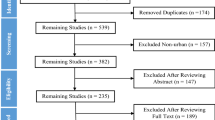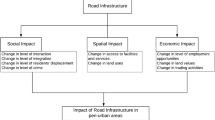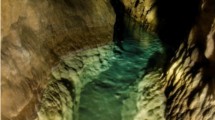Abstract
The study is projected to analyze a susceptible issue in Gujrat city Pakistan. Green spaces are being replaced by infrastructure in the city, and present green spaces and parks faces the challenges, including infrastructure development, lack of planning and budget. However, current land use planning gave a jerk to the city’s economy in the long run. Therefore, there is strong need exist to analyses this issue to achieve the sustainable goals. It has been analyzed that resort places/parks are situated around the premises of the city and makes it difficult for the middle class to access. The results show that parks enhance social interaction between the residents of the area, the concerning authorities should manage budgetary constraints for green spaces and parks to improve overall picture of the city’s planning. The study suggested that the addition of green spaces is essential to improved urban growth of economy, agriculture and environmental engagement of people within the city. The government should endorse the idea of reserving the urban green places to improve the green ecology in the sight of the best interests of the area.



Similar content being viewed by others
REFERENCES
Alam, R., Shirazi, S.A., Bhalli, M.N., Zia, S.M., and Minallah, M.N.U., Spatial distribution of urban green spaces in Lahore, Pakistan: a case study of Gulberg Town, Pak. J. Sci., 2014, vol. 66, no. 3, pp. 277–281.
Anwar, M.M., Recreational opportunities and services from ecosystem services generated by public parks in Megacity Karachi-Pakistan, Sindh Univ. Res. J., 2012, vol. 44, no. 1, pp. 23–28.
Breitenstein, D. and Ewert, A., Health benefits of outdoor recreation: implications for health education, J. Health Educ., 1990, vol. 21, no. 1, pp. 16–21.
Crouzat, E., Martín-López, B., and Turkelboom, F.S., Disentangling trade-offs and synergies around ecosystem services with the influence network framework: illustration from a consultative process over the French Alps, Ecol. Soc., 2016, vol. 21, no. 2, p. 32.
Erkip (Beler), F., The distribution of urban public services: the case of parks and recreational services in Ankara, Cities, 1997, vol. 14, no. 6, pp. 353–361.
Godbey, G.C., Caldwell, L.L., Floyd, M., and Payne, L.L., Contributions of leisure studies and recreation and park management research to the active living agenda, Am. J. Prev. Med., 2005, vol. 28, no. 2, pp. 150–158.
Han, B., Cohen, A.D., Derose, K.P., Marsh, T., Williamson, S., and Loy, S., Effectiveness of a free exercise program in a neighborhood park, Prev. Med. Rep., 2015, vol. 2, pp. 255–258.
Hooper, D.U., Chaplin, F.S. III, Ewel, J.J., Hector, A., Inchausti, P., Lavorel, S., and War, D.A., Effects of biodiversity on ecosystem functioning: a consensus of current knowledge, Ecol. Monogr., 2005, vol. 75, no. 1, pp. 3–35.
Khan, A.A. and Shafqat, A., Assessing the spatial distribution and allocation gaps of urban parks in Bahawalpur city of Punjab, Pakistan, Pak. J. Soc. Sci., 2014, vol. 34, no. 2, pp. 545–561.
Konijnendijk, C., Annerstedt, M., Nielsen, A.B., and Maruthaveeran, S., Benefit of Urban Parks: A Systematic Review, London: Int. Fed. Parks Recreation Admin., 2013.
Maes, J., Liquete, C., Teller, A., Erhard, M., Paracchini, M.L., Barredo, J.I., and Lavalle, C., An indicator framework for assessing ecosystem services in support of the EU Biodiversity Strategy to 2020, Ecosyst. Serv., 2016, vol. 17, pp. 14–23.
Mokhtari, R. and Hosseinifar, S.M., Economic and social value of recreational facilities in urban areas by using travel cost method (case study: Amirkola Urban Park, Mazandaran Province, Iran), Eur. Online J. Nat. Soc. Sci., 2013, vol. 2, no. 4, pp. 549–555.
Moore, J.B., Cook, A., Schuller, K., Lu, Y., Yuan, Z., and Maddock, J.E., Physical activity and park use of youth in Nanchang, China, Prev. Med. Rep., 2017, vol. 8, pp. 256–260.
Ou, J.Y., Levy, J.I., Peters, J.L., Bongiovanni, R., Soto, J.G., Medina, R., and Scammell, M.K., A walk in the park: the influence of urban parks and community violence on physical activity in Chelsea, MA, Int. J. Environ. Res. Publ. Health, 2016, vol. 13, no. 1, p. 97.
Pincetl, S. and Gearin, E., The reinvention of public green space, J. Urban Geogr., 2005, vol. 26, no. 5, pp. 365–384.
Reid, W.V., Mooney, H.A., Cropper, A., Capistrano, D., Carpenter, S.R., Chopra, K., and Zurek, M.B., Ecosystems and Human Wellbeing: Synthesis Millennium Ecosystem Assessment, Washington, DC: World Resour. Inst., 2005, p. 137.
Rigolon, A., Browning, M.H.E.M., Lee, K., and Shin, S., Access to urban green space in cities of the Global South: a systematic literature review, Urban Sci., 2018, vol. 2, no. 3, pp. 25–67.
Tammi, I., Mustajärvi, K., and Rasinmäki, J., Integrating spatial valuation of ecosystem services into regional planning and development, Ecosyst. Serv., 2016, vol. 26, no. 2, pp. 329–344.
Veal, A.J., Definitions of leisure and recreation, Aust. J. Leisure Recreation, 1992, vol. 2, no. 4, pp. 44–48.
Author information
Authors and Affiliations
Corresponding authors
Ethics declarations
Conflict of interests. The authors declare that they have no conflicts of interest.
Statement on the welfare of humans or animals. This article does not contain any studies involving animals performed by any of the authors.
Rights and permissions
About this article
Cite this article
Anwar, M.M., Fayyaz, F., Aziz, A. et al. Socio-Ecological and Ethical Economic Demand of Urban Parks in Gujrat City, Punjab, Pakistan. Arid Ecosyst 11, 141–148 (2021). https://doi.org/10.1134/S2079096121020037
Received:
Revised:
Accepted:
Published:
Issue Date:
DOI: https://doi.org/10.1134/S2079096121020037




